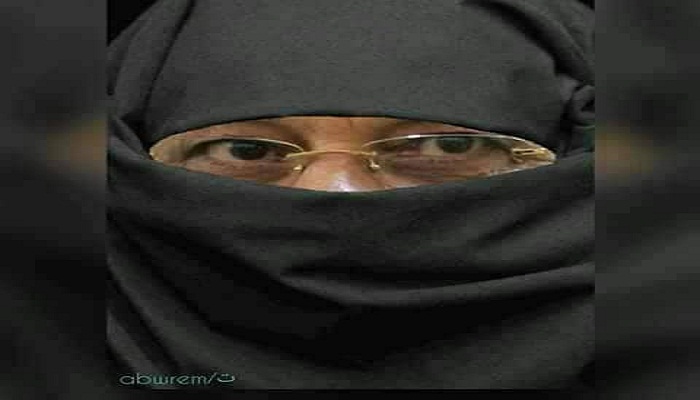Saudi Confesses Controlling Over Yemen for Past Decades .. Read Saudi Ambassador`s Wife Story
Saudi Ambassador to Yemen, Mohammed Alyahya has confessed that Yemen was being under Saudi Arabia`s control during past decades
That came in an interview on MBC Channel on last Monday. He was telling the story of his mission to smuggle Ali Mohsen al-Ahmar from Sanaa as his wife with Burqa ( a part of women clothes) after the fall of the headquarters of the 1st Armored Division. This happened after Ansarullah cleansing Sanaa during the revolution of 21 September 2014
Mohammed Alyahya said ” Former Saudi Foreign Minister Prince Saud al Faisal ordered that General Ahmar should be protected and kept safe inside Yemen, so we were planning clandestinely transport General Ali Mohsin al Ahmar out of Yemen. I ordered Yemeni Air Forces to take this mission. I directed security & snipers to take their positions in case such an attempt was made by Houthis/Saleh to catch him
At the same time, Ambassador Al Jaber ordered General Ahmar for two of his most trusted men and dressed one of them as General Ahmar. He then arranged for the General’s convoy to come as close to the Ambassador’s entrance and possible and pick up the men while Gen Ahmar was inside
He ordered diplomatic security to stand down as if Gen Ahmar had in fact left the premises & communicated this to the embassy’s local Yemeni hires as well. Some Saudi diplomats were instructed to leak that Ali Mohsin left for Taiz, others said Hodeida, & some said Ma’rib
Ali Mohsin’s makeshift double was instructed not to exit the car until he was well within the General’s Sanaa villa. The plan worked. Local media reported that Ali Mohsin fled to either Hodeida, Taiz, or Ma’rib and that he was preparing troops to fight the Houthis
That was phase 1 of the operation. The night was approaching and Ali Mohsin was still in the Saudi embassy and needed to be transported out of Yemen and into Saudi territory. The Ambassador called President Hadi and asked for armed cars to transport Ahmar to the Presidential Palace
After Ali Ahmar was safely and secretly transported to the Presidential Palace, Saudi diplomats were told to roll back the heightened security measures and operate as normal so as not to arouse the suspicions of Saleh and the Houthis
At night, upon arriving at the Presidential Palace to finish the job, Ambassador Al Jaber ordered an official for a helicopter to transport General Ahmar and 9 of his men into Saudi Arabia but was told the helicopters did not fly at night so he called the Yemeni Air Force
The Ambassador spoke to a trusted personal contact at the Air Force who verified that the helicopters, in fact, did not fly at night but promised to send a helicopter at 06:00 AM to the Presidential Palace to transport General Ahmar
The Ambassador told the Air Force and spread the news that the helicopter was meant for his own wife and children that he wanted to evacuate to Saudi Arabia
At 06: 00 AM, as the helicopter was set to take off from the Air force base at Sanaa airport but the Houthis blocked it from flying. The Ambassador then called his Air Force contact who arranged for a helicopter from al Anad airbase. It arrived in the Presidential Palace at 08:45
Upon conducting a brief background check on the pilot, the helicopter was cleared to take off with General Ali Mohsin and 9 of his men on board. It reached Jazan shortly thereafter
Mohammed Al-Houthi, head of the Supreme Revolutionary Committee, commented on the Saudi ambassador’s story, saying ” the statements at this time are proof that the Saudis have abandoned the Brotherhood’s service and that they are dealing with them as terrorists or suspects, and the contempt of their military leader through the detailed explanation and the use of the word ‘wife’
“Ansarullah did not pose any threat to the Saudi embassy if the ambassador felt threatened, he would refuse the presence of a wanted person,” Al-Houthi said in tweets on Twitter. Al-Houthi also said that the Saudi embassy was a military camp where there were snipers and other military personal, unlike diplomatic embassies that depend on the country’s guardianship

